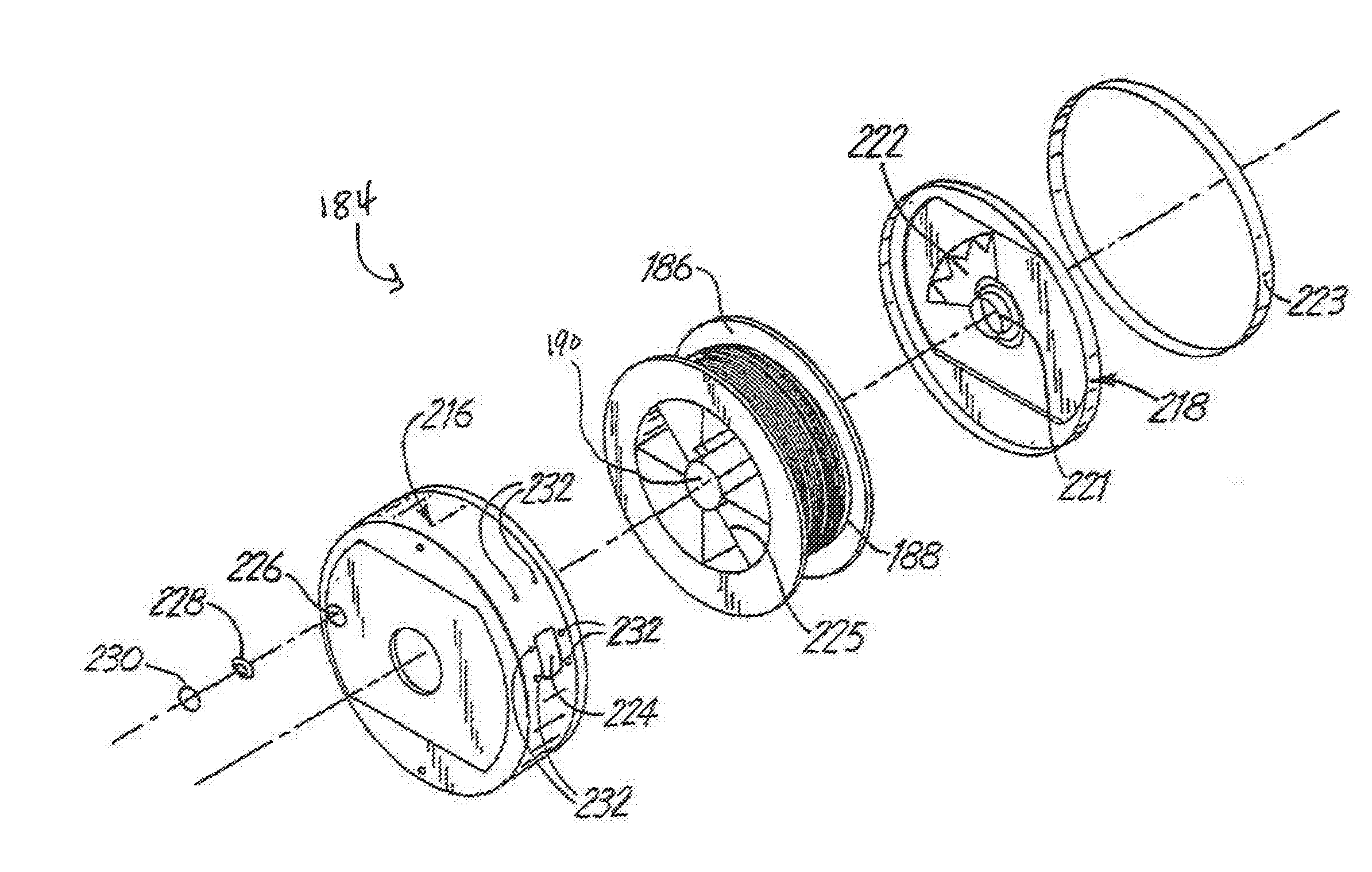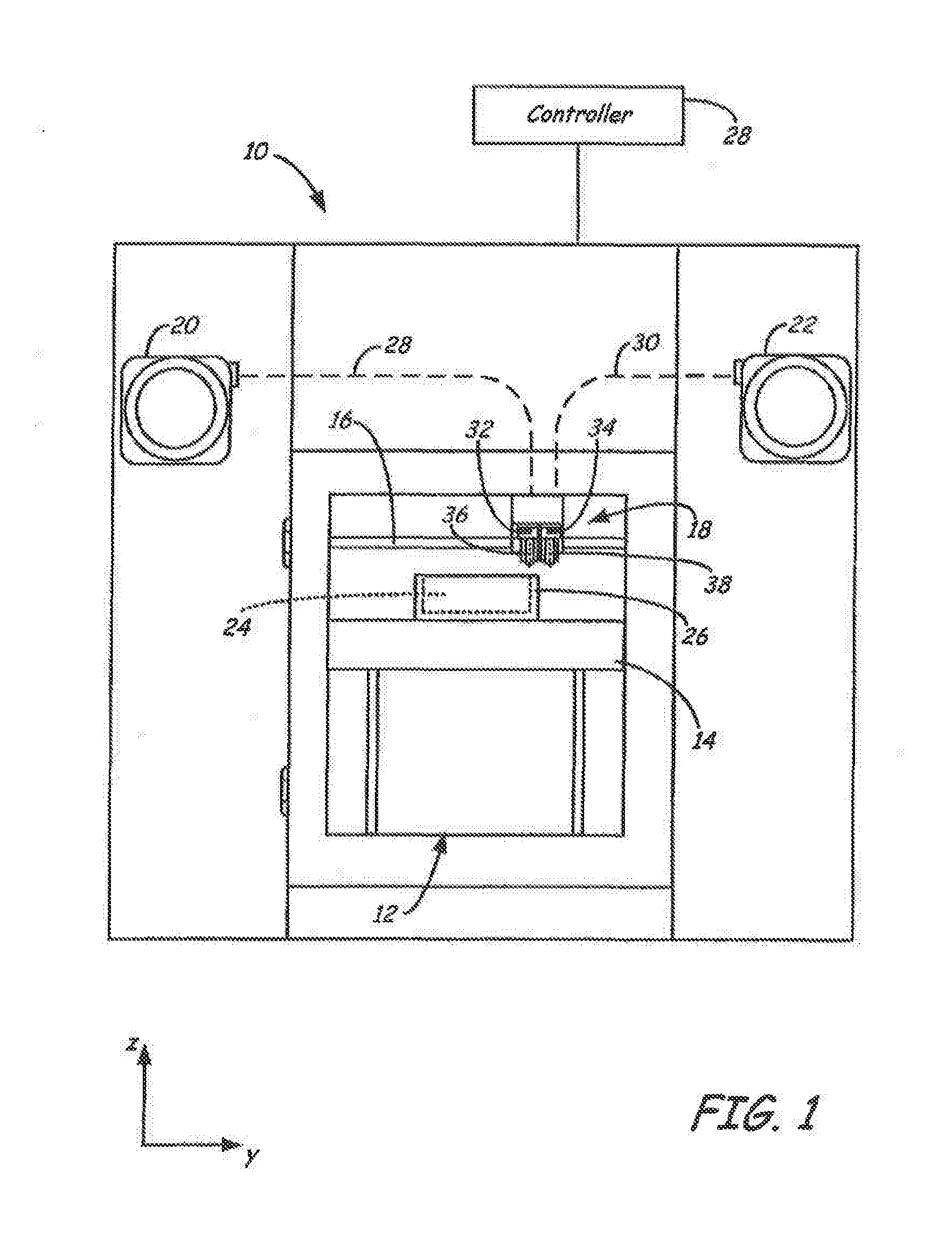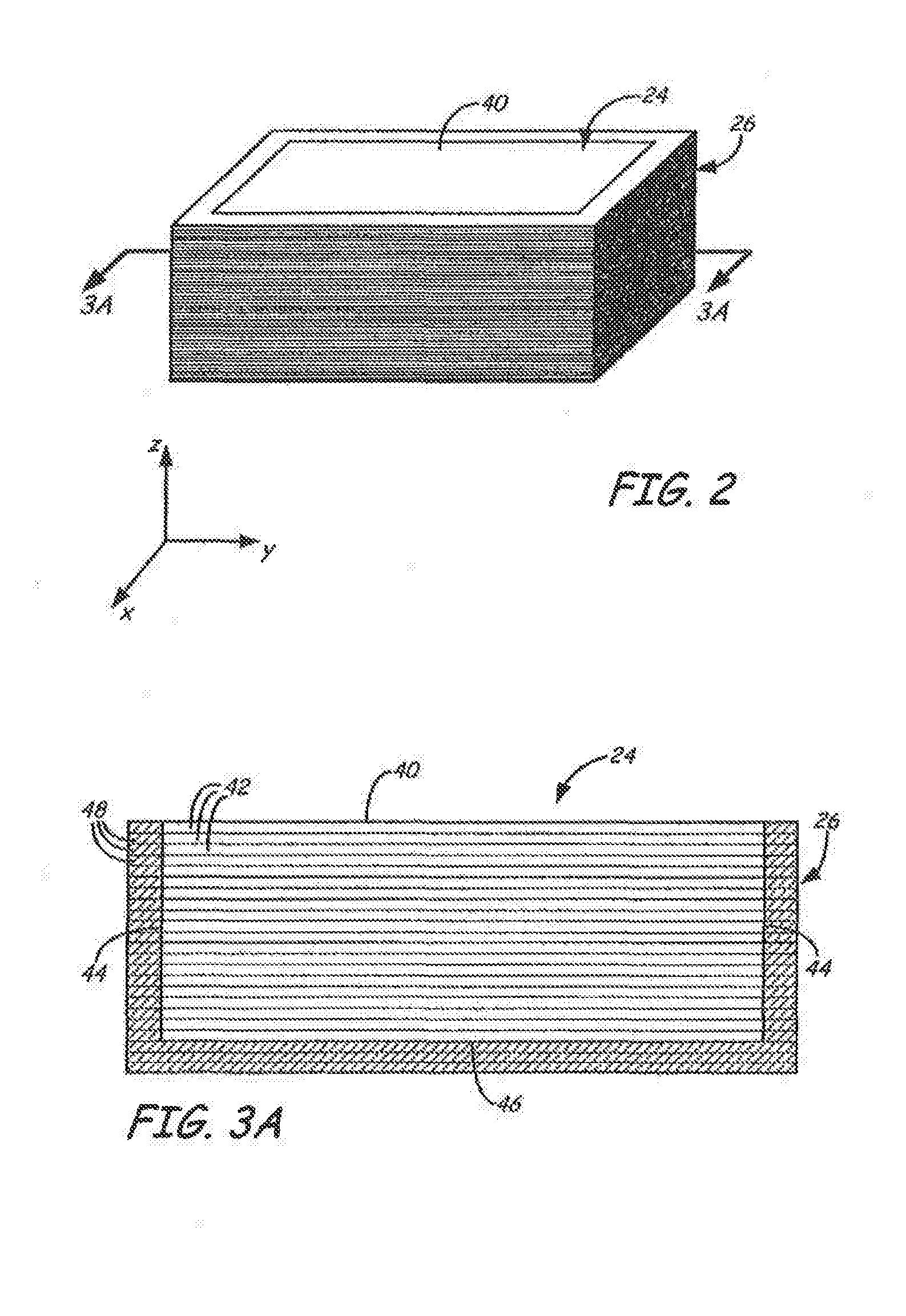Polymeric Material for Three-Dimensional Printing
a three-dimensional printing and polymer technology, applied in printing, manufacturing enclosures, butter production, etc., can solve the problems of lack of flexibility, not renewable, prone to curling or warping,
- Summary
- Abstract
- Description
- Claims
- Application Information
AI Technical Summary
Benefits of technology
Problems solved by technology
Method used
Image
Examples
example 1
[0100]The ability to create a unique porous network within a polymeric material as demonstrated. Initially, a thermoplastic composition was formed from 85.3 wt. % polylactic acid (PLA 6201D, Natureworks®), 9.5 wt. % of a microinclusion additive, 1.4 wt. % of a nanoinclusion additive, and 3.8 wt. % of an internal interfacial modifier. The microinclusion additive was Vistamaxx™ 2120 (ExxonMobil), which is a polypropylene-polyethylene copolymer elastomer with a melt flow rate of 29 g / 10 min (190° C., 2160 g) and a density of 0.866 g / cm3. The nanoinclusion additive was poly(ethylene-co-methyl acrylate-co-glycidyl methacrylate) (Lotader® AX8900. Arkema) having a melt flow rate of 5-6 g / 10 min (190° C. / 2160 g), a glycidyl methacrylate content of 7 to 11 methyl acrylate content of 13 to 17 wt. %, and ethylene content of 72 to 80 The internal interfacial modifier was PLURIOL® WI 285 Lubricant from BASF, which is a polyalkylene glycol functional fluid.
[0101]The polymers were fed into a co-ro...
example 2
[0103]The compounded pellets of Example 1 were dry blended with a third inclusion additive, which was a halloisite clay masterbatch (MacroComp MNH-731-36 MacroM) containing 22 wt. % of a styrenic copolymer modified nanoclay and 78 wt. % polypropylene (Exxon Mobil 315). The mixing ratio was 90 wt. % of the pellets and 10 wt. % of the clay masterbatch, which provided a total clay content of 2.2%. The dry blend was then flood fed into a signal screw extruder heated to a temperature of 212° C., where the molten blend exited through 4.5 inch width slit die and drawn to a thickness ranging from 51 to 58 μm. The materials were stretched in the machine direction to about 100% to initiate cavitation and void formation.
[0104]The morphology of the materials was analyzed by scanning electron microscopy (SEM) before and after stretching. The results are shown in FIGS. 9-12. As shown in FIGS. 9-10, some of the nanoclay particles (visable as brighter regions) became dispersed in the form of very s...
example 3
[0105]The ability to create a polymeric material having unique properties was demonstrated. Initially, a blend of 85.3 wt. % PLA 6201D, 9.5 wt. % of Vistamaxx™ 2120, 1.4 wt. % of Lotader® AX8900, and 3.8 wt. % of PLURIOL® WI 285 was formed. The polymers were fed into a co-rotating, twin-screw extruder (ZSK-30, diameter of 30 mm, length of 1328 millimeters) for compounding that was manufactured by Werner and Pfleiderer Corporation of Ramsey, N.J. The extruder possessed 14 zones, numbered consecutively 1-14 from the feed hopper to the die. The first barrel zone #1 received the resins via gravimetric feeder at a total throughput of 15 pounds per hour. The PLURIOL® WI285 was added via injector pump into barrel zone #2. The die used to extrude the resin had 3 die openings (6 millimeters in diameter) that were separated by 4 millimeters. Upon formation, the extruded resin was cooled on a fan-cooled conveyor belt and formed into pellets by a Conair pelletizer. The extruder screw speed was ...
PUM
| Property | Measurement | Unit |
|---|---|---|
| Pressure | aaaaa | aaaaa |
| Density | aaaaa | aaaaa |
| Nanoscale particle size | aaaaa | aaaaa |
Abstract
Description
Claims
Application Information
 Login to View More
Login to View More - R&D
- Intellectual Property
- Life Sciences
- Materials
- Tech Scout
- Unparalleled Data Quality
- Higher Quality Content
- 60% Fewer Hallucinations
Browse by: Latest US Patents, China's latest patents, Technical Efficacy Thesaurus, Application Domain, Technology Topic, Popular Technical Reports.
© 2025 PatSnap. All rights reserved.Legal|Privacy policy|Modern Slavery Act Transparency Statement|Sitemap|About US| Contact US: help@patsnap.com



